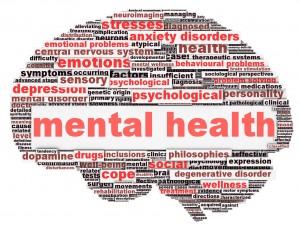 ‘Empowerment’ is one of those words whose meaning can lose impact over time and with overuse. Or when you use it like this: “Let me reach out to my team and see if we can ignite our value proposition in a way that will empower them and help us achieve our organizational goal of scalability.” Do you gloss over when you read or hear stuff like that, or, like me, hear the voice of Charlie Brown’s teacher in your head?
‘Empowerment’ is one of those words whose meaning can lose impact over time and with overuse. Or when you use it like this: “Let me reach out to my team and see if we can ignite our value proposition in a way that will empower them and help us achieve our organizational goal of scalability.” Do you gloss over when you read or hear stuff like that, or, like me, hear the voice of Charlie Brown’s teacher in your head?
Recently, two readers left brilliant comments on my blog post regarding involuntary outpatient treatment that reminded me why empowerment should never become cliché, no matter how often it is used in corporate speak or marketing materials or annual reports. It’s not cliché, nor is it easy, which is perhaps why we gloss over it and take shortcuts that will produce quicker results, even when we know we could get better results if we waited longer, and, yes, invested more.
In their insightful responses, both Marcy and Jill brought the discussion back to be one of meaningful care instead of forced treatment. This isn’t to say that involuntary outpatient treatment doesn’t have a place in the conversation, but rather, if we focus on building resources around something like that, it’s like saying, “Well, the car dealer sold us a lemon with an oil leak, but that’s okay, we can just keep adding a quart of oil to the engine after every 100 miles and it’ll keep going.”
What about the car dealer? And is it just that car dealer, or is there a culture—of expediency, of profit, of apathy or whatever—that has sprung up in the automobile industry and trickled out into all the car dealer tributaries? (Note: I mean no offense to car dealers and my own experience with them has generally been very positive!)
 Thinking about what path leads to more meaningful treatment for people with mental illness, it seems to me that we need to go back and look at where the cracks and gaps in the mental health system start, and to make sure that forced outpatient treatment isn’t our version of accepting a car with an oil leak.
Thinking about what path leads to more meaningful treatment for people with mental illness, it seems to me that we need to go back and look at where the cracks and gaps in the mental health system start, and to make sure that forced outpatient treatment isn’t our version of accepting a car with an oil leak.
We don’t want to keep driving that car, just barely maintaining it until we’ve run it into the ground. We need a system that empowers mental health consumers—in a real way, not a corporate-speak way—so that they are able to advocate for their needs and fully participate in their own care, as Marcy and Jill suggested. And the vision would be that if mental health care were delivered in a more meaningful way, mental health consumers wouldn’t reach the crisis states that lead to forced treatment in the first place.
Why is empowerment so vital? It’s human nature that we invest more of ourselves in something when we’re given a role to play in the process and decisions. Just think of anything that you’ve ever worked on at a job, and what aspects of your work made you put skin in the game for one thing and not another.
 I do hope that some of you guys will post references and links to organizations who participate in models for treatment delivery that engages the consumer.
I do hope that some of you guys will post references and links to organizations who participate in models for treatment delivery that engages the consumer.
In the meantime, here are a few resources from which I’ve taken inspiration.
- Agnes’s Jacket, a book by Gail Hornstein
- Hearing Voices Network
- Freedom Center
My best resource other than the people that I know personally who have recovered from “serious mental illness” is this one: “Bringing together peers, providers, family members, and others to create community and shift the culture of mental health systems.”
http://www.power2u.org
Cool, Jill, thanks for that! I noticed that Oryx Cohen is one of the staff at this organization and Will Hall is an consultant. They were the co-founders of Freedom Center.
Love that, Jill. It will take a community. But I think we have to change the way we think about mental health. The medical model approach is creating loads of problems. This is so disempowering, its too insignificant to try to give back some power later.
Hi Jodi, thanks for being here, as always! I’m interested to hear more from you on the medical model if you have the time to expand on your comment.
I was inspired by this post to read your older article, “When Someone You Love Has an Untreated Mental Illness” and also Jeri’s article, “When Your Mother is Crazy.”
Both you and Jeri move my heart with your honesty and compassion. You both inspire me seeing how strong and wise you’ve become–not without pain and effort, I’m sure–you are amazing people. My heart sings a lullaby of peace and love to your inner girls who suffered and survived those childhoods.
Each time I read one of your posts related to mental illness, I am reminded to find compassion for myself for not being able to help my mentally-ill cousin (really like a big brother to me), and compassion for him as he struggles to live a life that is meaningful for him. Thank you.
Jagoda, I was up in Canada for the weekend when I read your comment on my iPhone and it really made my weekend. Thank you. I am humbled by your words. And as always, thank you for reading and participating and inspiring me to continue to bring the stories of mental illness — and the people at the center of them — into daily life.
Jagoda, your comment means a lot, and there was no other place than Laura’s blog where I wanted to share my story about my mother. Laura is doing amazing work here.
Thank you, Jeri. Lucky to have you as a collaborator. 🙂